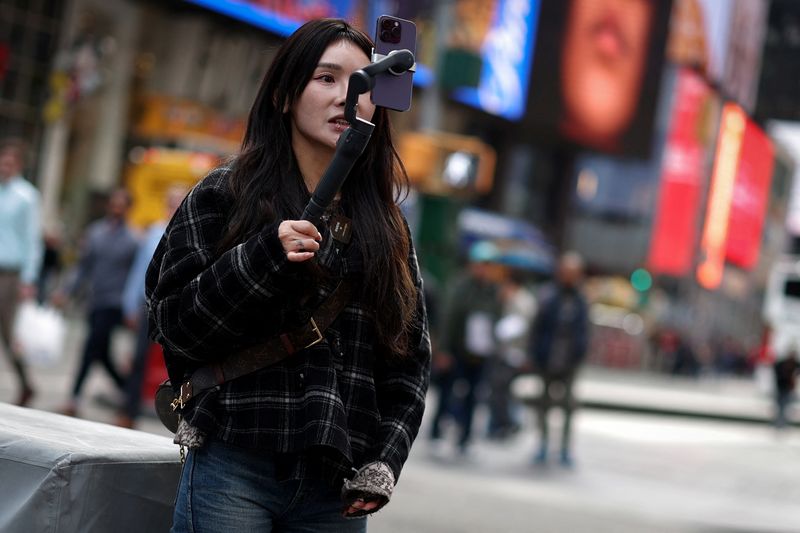By David Shepardson
WASHINGTON (Reuters) – The Justice Department late on Wednesday asked a U.S. appeals court to reject an emergency bid from TikTok to temporarily block a law that would require Chinese parent company ByteDance to shut down the short-video app by Jan. 19 otherwise a lawsuit will be filed. prohibit.
TikTok and ByteDance filed the emergency motion Monday with the U.S. Court of Appeals for the District of Columbia, pending a review by the U.S. Supreme Court. They warned that without legal action, the law “will shut down TikTok – one of the country’s most popular voice platforms – to its more than 170 million domestic monthly users.”
The Justice Department said the court should not delay the law’s effective date, arguing that “continued Chinese control over the TikTok application poses an ongoing threat to national security.”
TikTok did not immediately respond to a request for comment.
DOJ said Wednesday that if the ban takes effect on Jan. 19, it “would not directly prohibit the continued use of TikTok” by users who had downloaded TikTok, but conceded that the ban’s effect on providing support “will ultimately that makes the application unworkable.”
On Friday, a three-judge panel of the appeals court upheld the law requiring ByteDance to soon divest TikTok in the United States, which faces a ban in just six weeks.
The companies noted that President-elect Donald Trump has pledged to avoid a ban, arguing that the delay “will give the new administration time to determine its position.”
The decision — unless the Supreme Court overturns it — puts TikTok’s fate first in President Joe Biden’s hands on whether to grant a 90-day extension of the Jan. 19 deadline to force a sale, and then Trump, who will take office on January 1. 20.

Trump, who unsuccessfully tried to ban TikTok during his first term in 2020, said before the November presidential election that he would not allow the ban on TikTok.
The decision upholds the law that gives the US government sweeping powers to ban other foreign-owned apps that could raise concerns about US data collection. In 2020, Trump also tried to ban Tencent-owned WeChat, but this was blocked by the court.


